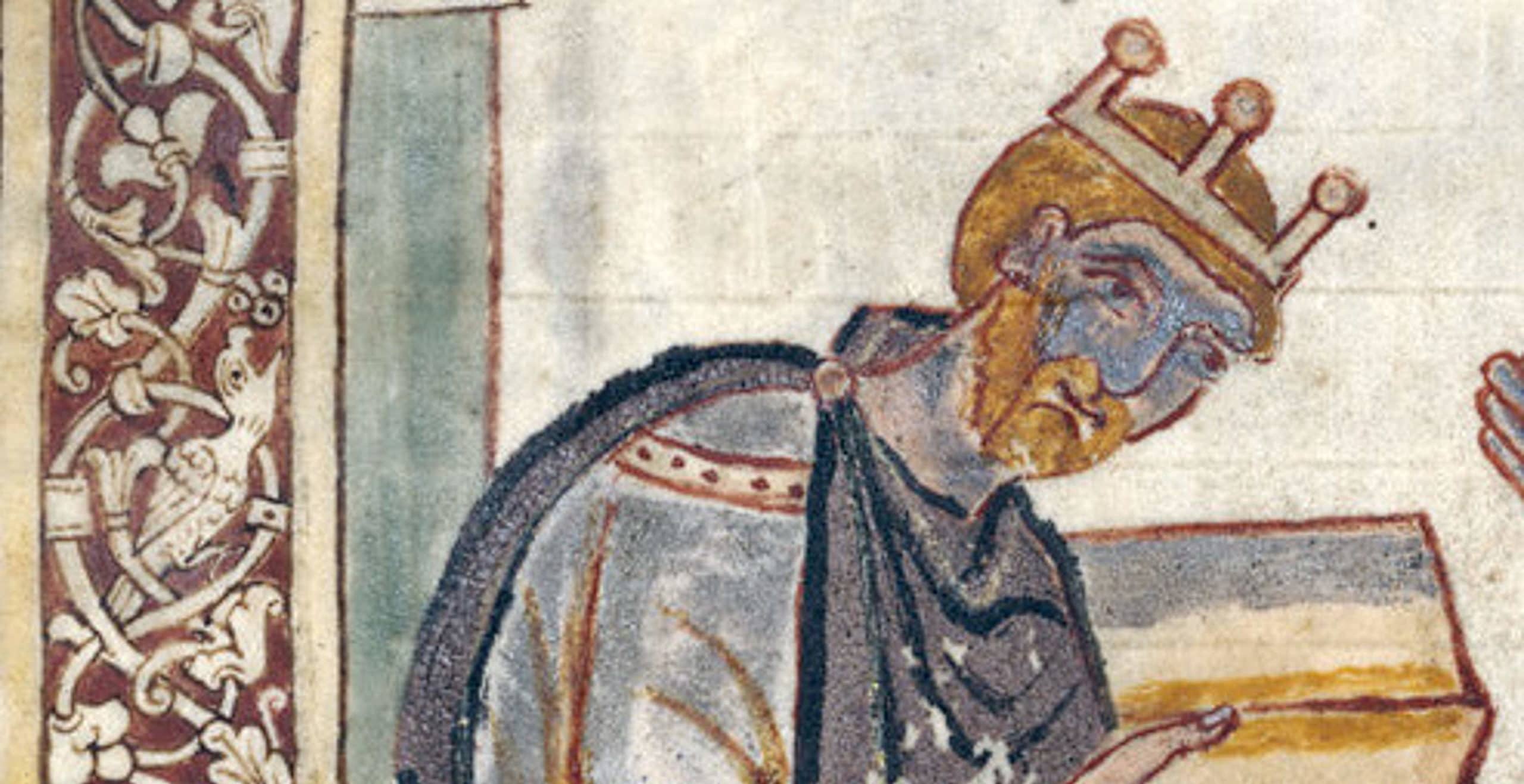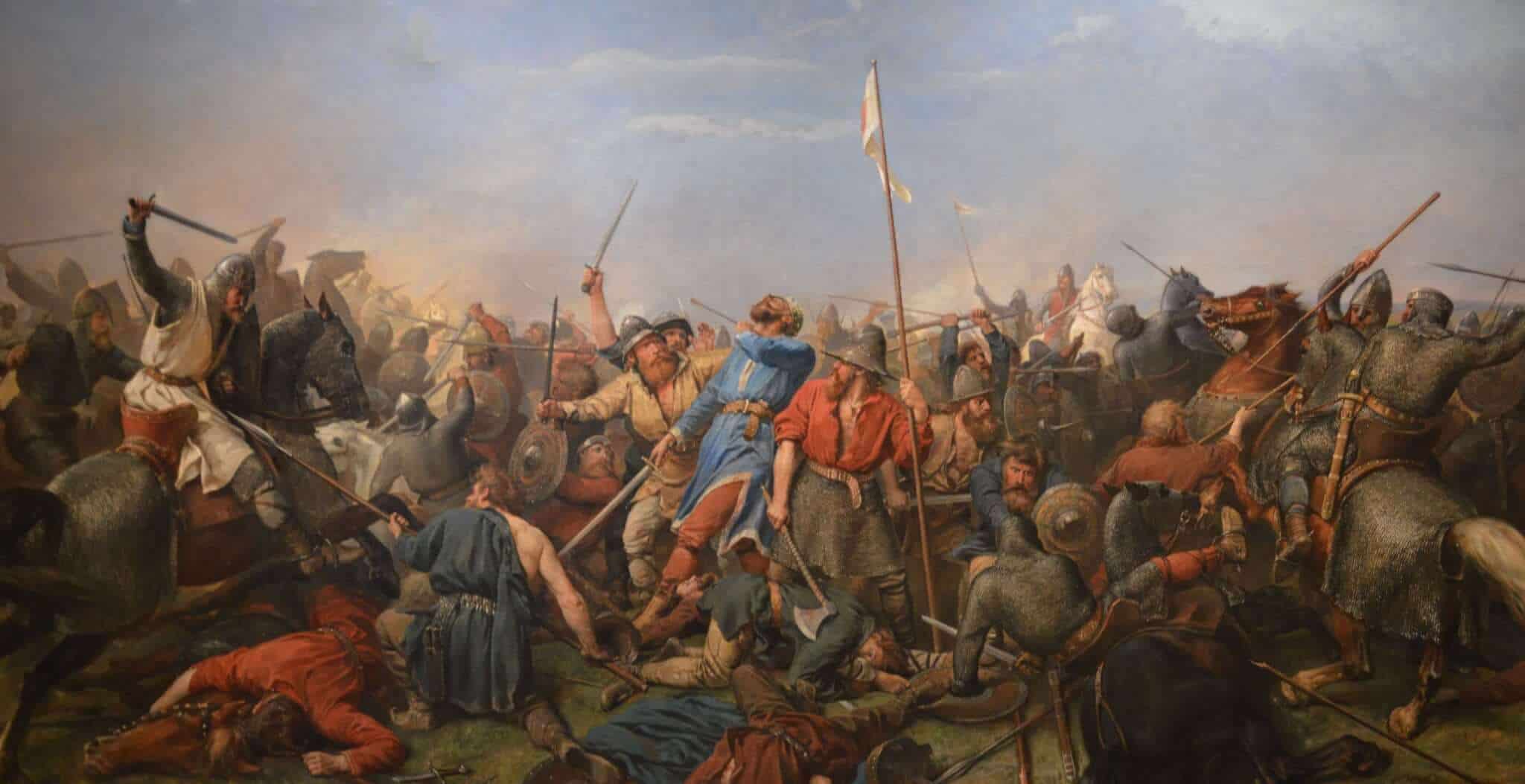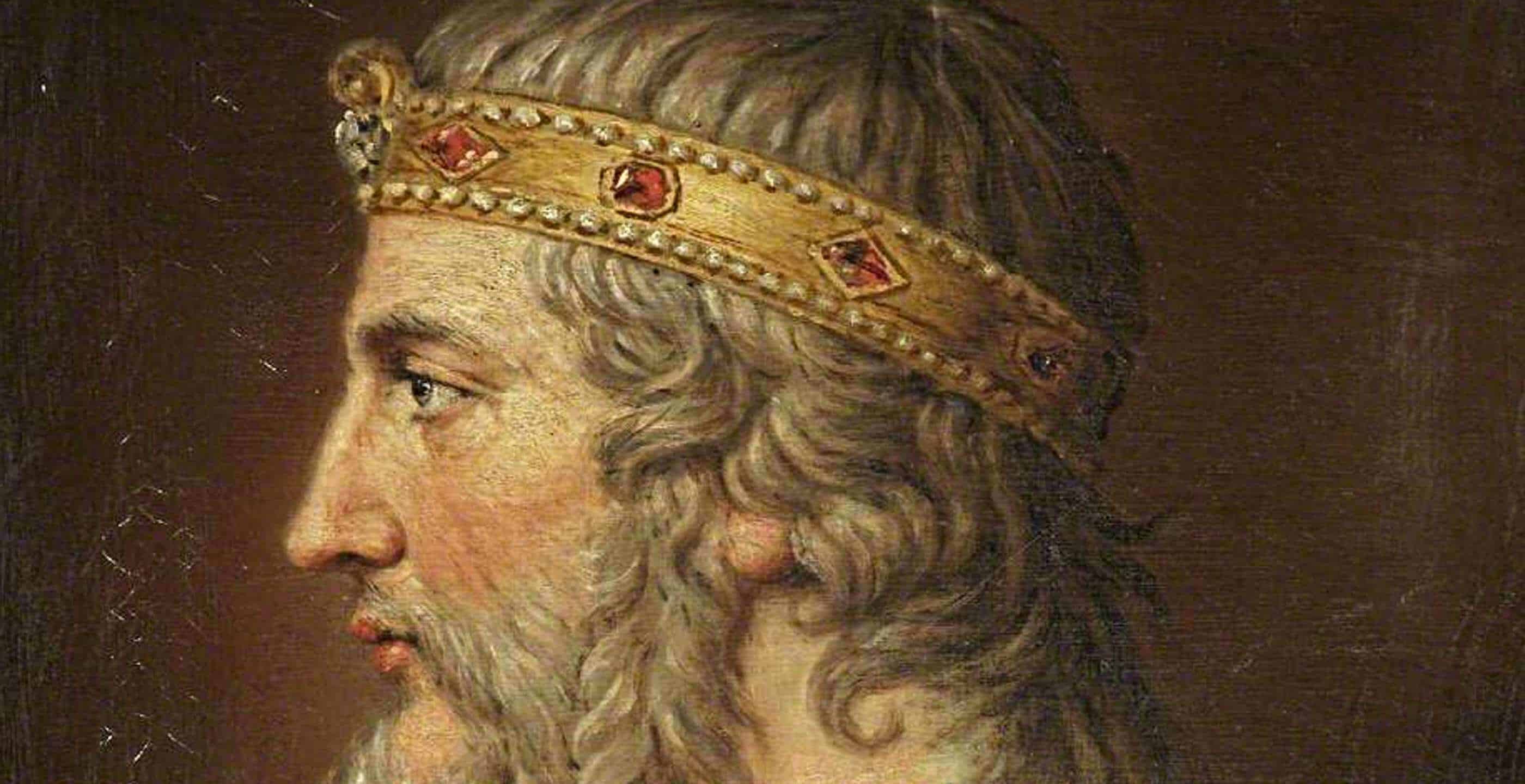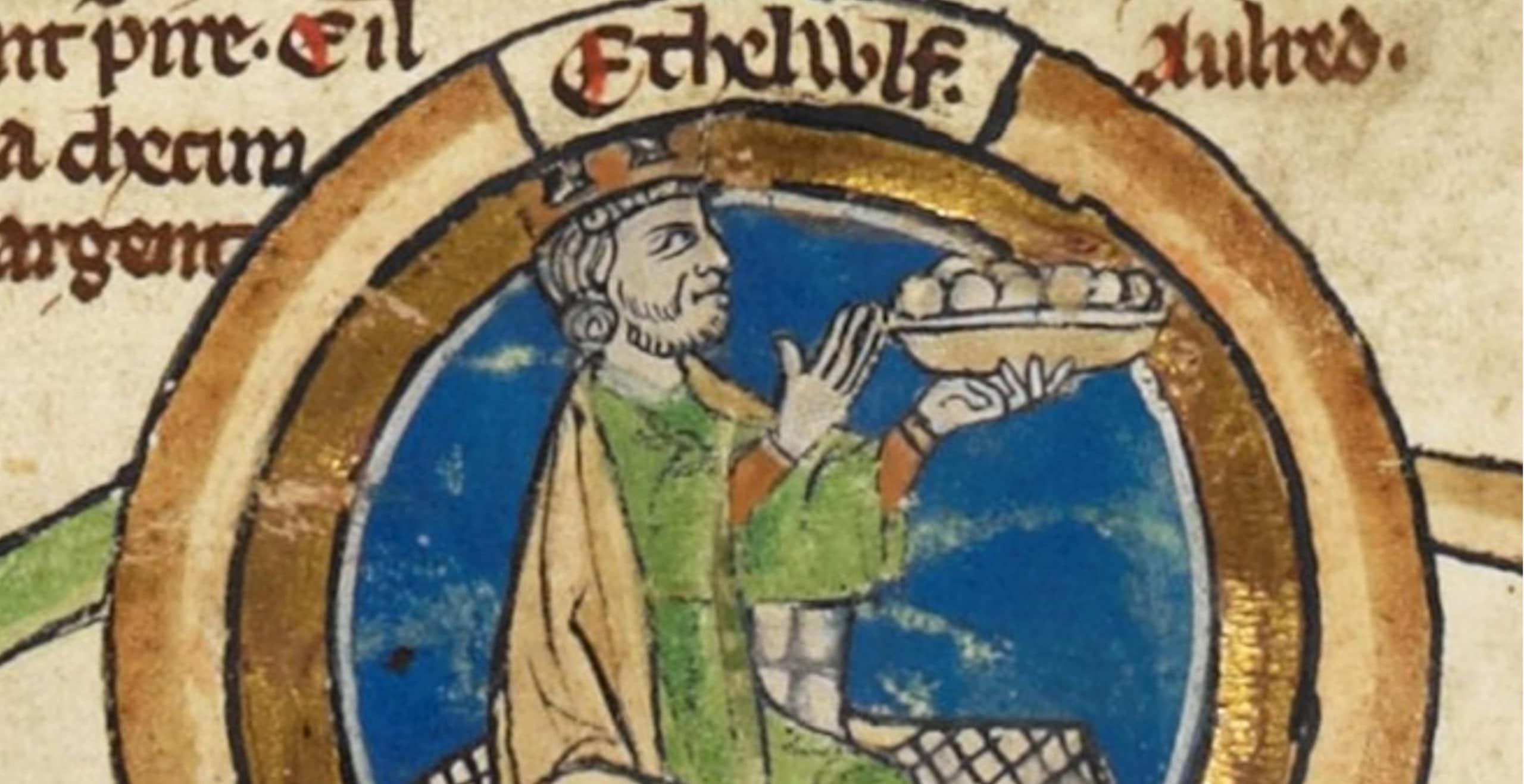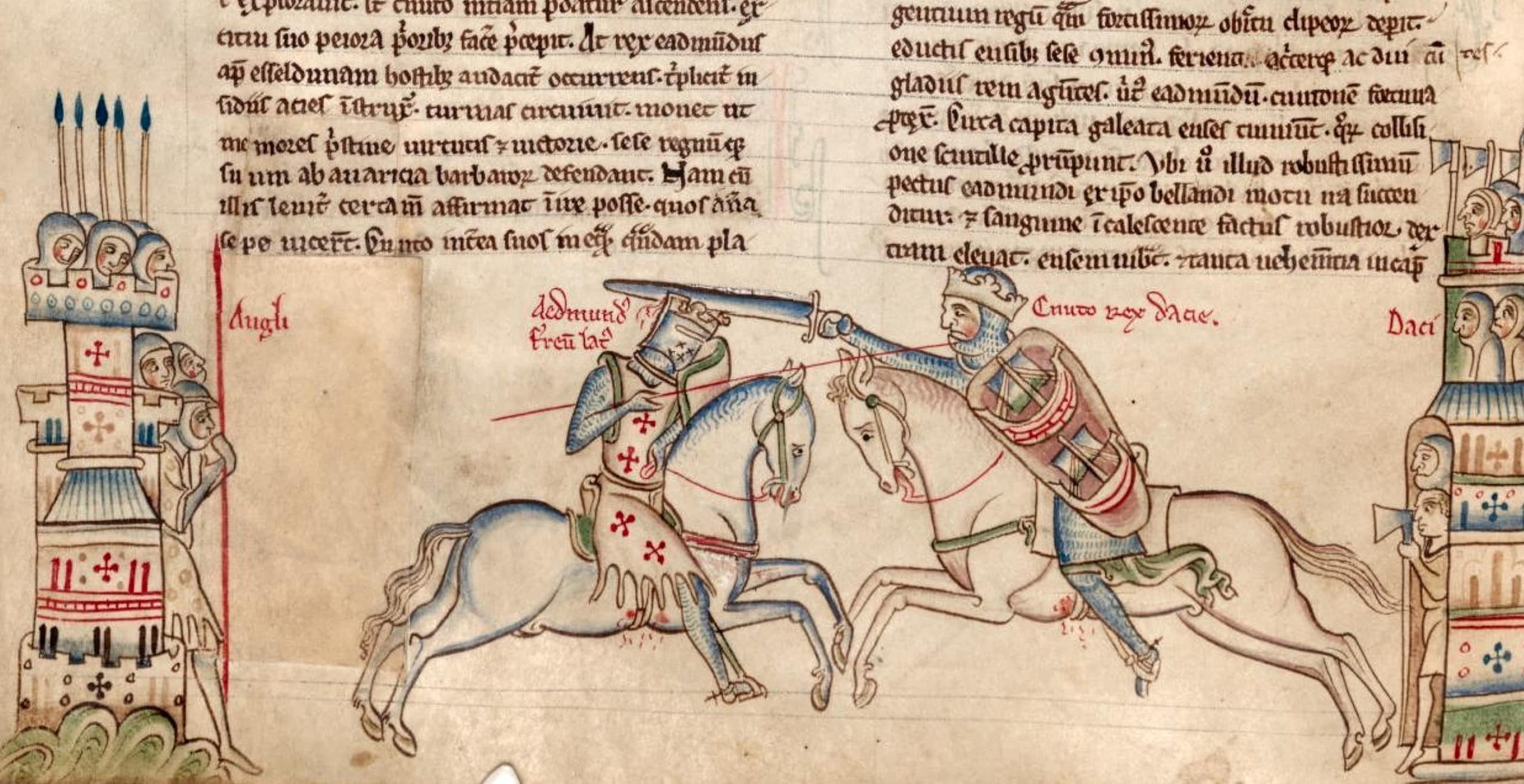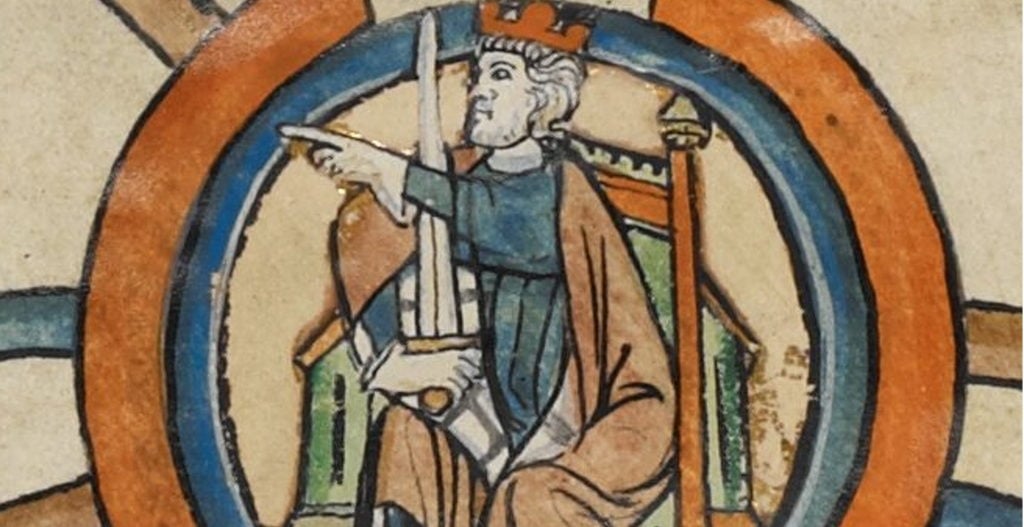King Athelstan is remembered as a great Anglo-Saxon King but perhaps most significantly he is considered by many to be the first King of the English, ending his reign overseeing his extensive kingdom.
After his father, King Edward the Elder passed away in July 924, his half-brother Aelfweard was initially recognised as King of Wessex, only to die three weeks later. Athelstan thus, in the light of his father and brother’s deaths, ascended the throne and was crowned on 4th September 925 at Kingston upon Thames.
Whilst his path to kingship was now unrivalled due to the passing of his brother, not all were happy with his ascendancy to the throne. Although he could rely on the support of Mercia, opposition to his rule came from Wessex.
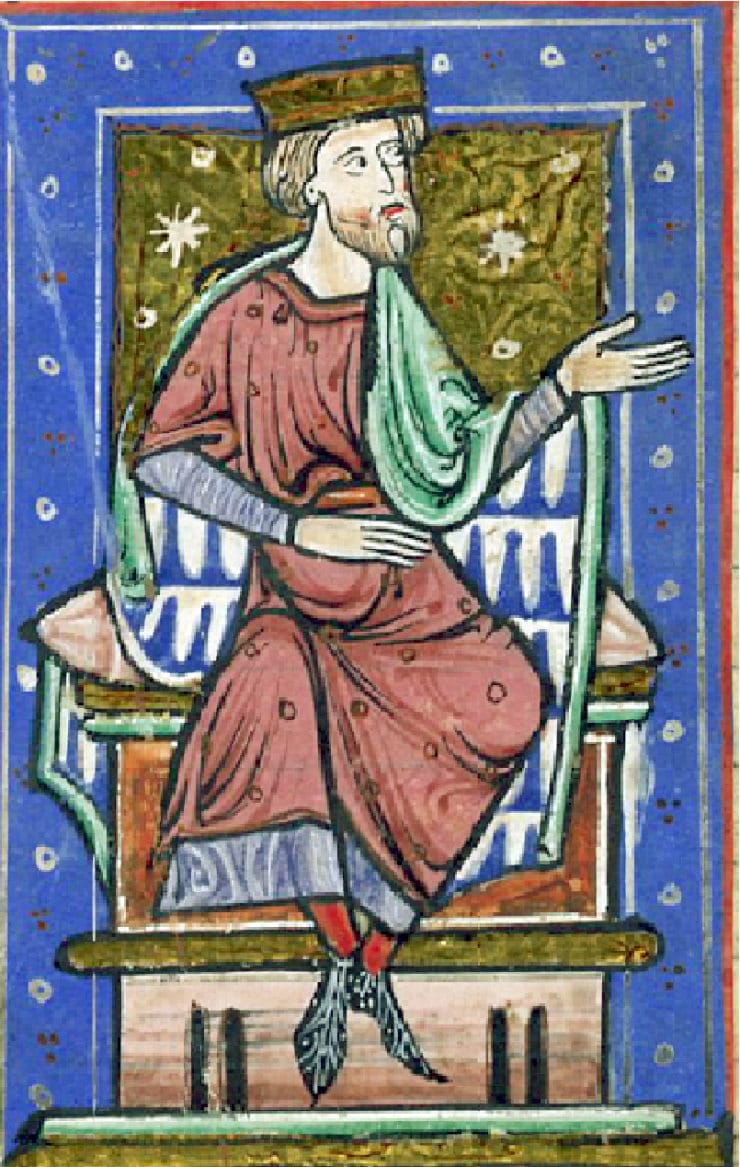
Now with the title of king, Athelstan’s task was extensive as he had inherited a great responsibility from his father Edward, who had managed to gain control of all of England south of the River Humber.
Athelstan, who had expected to one day become king, was well-versed in military procedure and had amassed experience in various campaigns against the Vikings in order to prepare him for the time that he would one day be in charge.
Moreover, it was said that Alfred the Great, his grandfather, gave Athelstan gifts before he died: a scarlet cloak, jewelled belt and Saxon sword.
When Athelstan did become king, his dedication to the role was obvious and during his entire reign he would choose not to marry or have children.
After his coronation in September 925, almost immediately he faced threats to his kingship in the form of a rebel plot to oust him almost as soon as he had ascended the throne. The plan had been concocted by a nobleman called Alfred who wanted to seize the newly appointed king and blind him, in order to make Athelstan no longer eligible for the role. Fortunately for Athelstan, this plot was never carried out and he managed to narrowly avoid the first threat to his position.
Athelstan soon realised that if he were to fend off the threats from inside and outside his kingdom, a greater level of diplomacy needed to be employed. Thus, in a bid to form an alliance, he proposed that the Viking King Sihtric of York marry one of his sisters in exchange for agreeing that neither side attack each other’s domains. Whilst both parties agreed to this arrangement sadly Sihtric died only a year later.
The Viking’s death was seen as an opportunity by Athelstan who decided to invade York where he was met by the opposition of Sihtric’s cousin Guthfrith. Fortunately, on this occasion Athelstan proved successful.
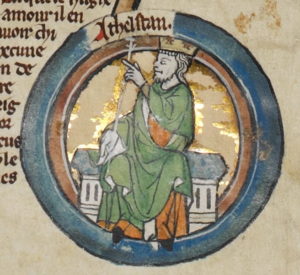
In an attempt to build on his success he went on to attack Bamburgh, in the process forcing the hand of the earl Ealdred Ealdufing who submitted to him after the attack.
With his territorial portfolio growing, Athelstan went a stage further and chose to issue the threat of war against the kings of the north and Wales, asking them for their subservience in exchange for the avoidance of war.
Only two years into his reign, on 12th July 927, at a meeting close to Penrith, King Constantine of Scotland, King Hywel Dda of Deheubarth and King Owain of Strathclyde agreed to acknowledge Athelstan as their overlord, thus securing a massive personal success for Athelstan’s growing powerbase.
Still keen to build on his successes, Athelstan next chose to concentrate his efforts on Wales and as a result, a meeting took place at Hereford where the kings of Wales were forced to acquiesce to Athelstan’s demands and recognise him as “mechteyrn” (greater king).
He then went on to define the border between England and Wales on the River Wye.
As part of this new relationship, Athelstan made demands for an annual tribute which was quite extensive and included twenty pounds of gold, three hundred pounds of silver and 25,000 oxen.
Whilst the two nations were able to secure a fragile peace, the resentment of the Welsh who had been suppressed, still simmered beneath the surface, perhaps most clearly encapsulated by the poem ‘Pyrdein Vawr’.
With little now standing in his way, Athelstan would continue his efforts on what he termed the West Welsh, in reference to the people of Cornwall. He asserted his authority in Cornwall and established a new see and appointed a bishop.
Whilst he extended his military and political influence further, he also built on the legal reforms instigated by his grandfather, Alfred the Great. Moreover, during his reign he did much to exemplify his pious nature by establishing churches and focusing on creating social order through the law and spread of religion.
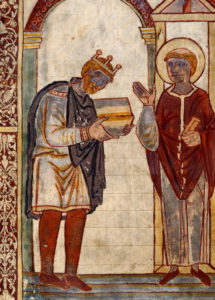
He also proved to be adept at handling matters of diplomacy and chose to take interest in the politics of the continent and in some cases reinforcing relationships through the marriages of his sisters.
By the early 930’s, Athelstan had established himself as effectively overlord of Britain, with very few areas untouched by his power.
That being said, in 934, whilst relative peace had been achieved across his lands he made the decision to invade Scotland. In doing so, he managed to force the Scots into a policy of appeasement after his army wrought havoc on the lands of the Scottish kings. Whilst no battles were recorded, it was known that the army he amassed included four Welsh kings who assembled at Winchester before travelling to the Midlands where they were joined by six Danish earls.
As part of the raiding party, Athelstan also managed to seize Scottish cattle and attack the Scottish coastline before forcing the Scots to retreat, thus allowing Athelstan to return to the south victorious and with freshly acquired power under his belt. He could now, well and truly be referred to as king of all the other kings of Britain.
With such prestige came resentment however, which soon manifested itself in the form of an alliance instigated by King Constantine II of Scotland who in 937 planned his retaliation.
For the rebels who were united in opposition, all would come to a head at the bloody Battle of Brunanburh.
Whilst the exact location of this battle remains unknown, it is known that Athelstan who was accompanied by his half-brother Edmund managed to secure a decisive victory against Constantine.
The Anglo-Saxon Chronicle tells us ‘ymbe Brunanburh, bord-weall clufon’ – ‘near Brunanburh they split the shield-wall’ – it then goes on to tell how how Athelstan’s victorious army persues the beaten Scots and Vikings and kills them mercilessly.
Despite this, Athelstan’s victory was far more noteworthy than just one battle. It represented Athelstan’s personal accomplishment at becoming the first overall ruler of the Anglo-Saxons.
A few years later he died on 27th October 939 in Gloucester, leaving in his wake a significantly larger kingdom than the one he had inherited.
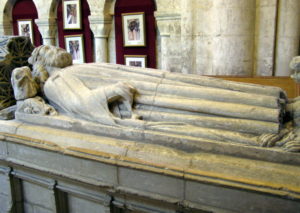
King Athelstan has sometimes been lost in the history books and taken a backseat to other significant rulers of early medieval Britain, however his kingship and influence on the Anglo-Saxons cannot be underestimated.
As the first overlord king ruling over England, King Athelstan not only acquired vast territories but also centralised his power, introduced legal reform, reinforced monasticism and integrated England onto the European stage.
For these reasons and many more, it is not surprising that William of Malmesbury, a twelfth century chronicler once wrote:
“no one more just or more learned ever governed the kingdom”.
Perhaps overlooked by some, King Athelstan remains a founding father of medieval England and the kingdoms he surveyed. Only time would tell whether his descendants could hold onto such power.
Jessica Brain is a freelance writer specialising in history. Based in Kent and a lover of all things historical.
Published: 10th March 2022
